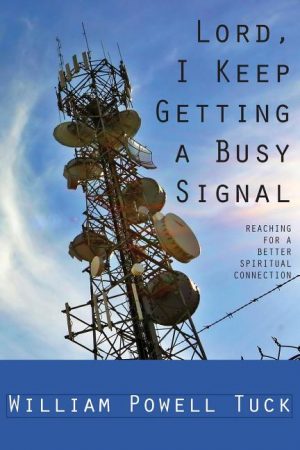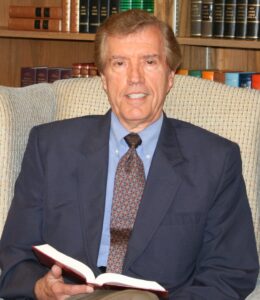How can we develop a real discipline of prayer when God seems silent?
by William Powell Tuck
Throughout my life I have sought to commune with God. I have undertaken this endeavor in many places. I have found moments of contemplation in quiet, small, white-framed country churches, in large traditional or contemporary-designed urban churches, in ancient Gothic cathedrals in Europe, in a Quaker Meeting House, in tent meetings, by lakes, rivers, creeks or sea shores, on secluded wooden mountainsides, on top of an extinct volcano, on white and black sand beaches, by campfires at night, before a blazing fire in my own den, in my study, on park benches, walking through multicolored hillsides in the fall, pausing beside a snow blanketed field, beside waterfalls, jogging along roadsides, following the path of saints from the past, secluding myself from others, fasting, finding an oasis of quiet in a noisy city and immersing myself in its stillness, and in many other ways. In many and varied modes, I have looked for ways to meditate. I have seldom found this desire so easily met or the place and conditions ideal. I have often been embarrassed to admit that praying has not come so easily or naturally to me.
I thought for a long time that this was simply a reflection on my personality or background. I soon discovered, however, in my Christian pilgrimage that most persons I know struggled with the same difficulty. Too many laypersons were content to have their pastor do their praying for them on Sunday morning. Prayer was not their “thing.” In our busy, modern world, prayer seems so remote, old-fashioned, and impractical. “Leave prayer to the professional holy men and women. We have real work to do,” they say.
Yet, I have heard ministers complain because laypersons interrupt their time for praying and give them so much busy work they have that they have little time to pray. One minister I know got in trouble with his church because he refused to give up the time he had set aside for prayer to attend a denominational breakfast meeting. He considered his prayer time so important that he would not let anything change it, even a denominational church meeting.
On the other hand, I have heard lay persons express dismay that their minister was not a praying person and refused to offer them any spiritual guidance. I have also known many devoted ministers and laypersons who have longed to deepen their spiritual life. My spiritual life has been enriched by both laypersons and ministers. I know one layman who arises each morning at 5:30 a. m. and prays and meditates for an hour. He has continued this practice for twenty-five years. I know a minister who sets aside several hours a day for quiet a reflection. Are these persons exceptions? I am afraid they are.
I am convinced that one reason that more laypersons and ministers do not spend more time in meditation is not because these persons do not love God or the Christ-like way, but they lack spiritual discipline to aid them in their religious journey. My book, Lord, I Keep Getting a Busy Signal, is one pilgrim’s suggestions on what has been meaningful to him. I have not tried to offer more than a brief sketch to throw some light on the path. I do not believe that our habits of superficial prayer time will ever change until we take seriously the necessity for spiritual disciplines.
-
 Lord, I Keep Getting a Busy SignalPrice range: $6.49 through $9.99
Lord, I Keep Getting a Busy SignalPrice range: $6.49 through $9.99








Prayer is our training in reigning with Jesus one day, and we dare not neglect it. I marvel at your creativity in finding places of prayer! Wow! It is our most important ministry to and for the Lord. I have great need of improvement!!! Help, Lord. Make me more like Martha!
Love,
Nancy